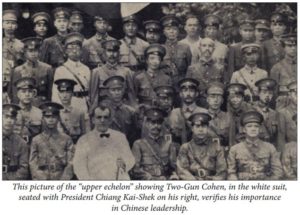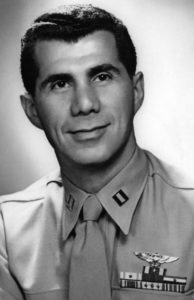World’s Oldest Jew
Zecharia Barashi (1900-2017) was born in Kurdistan, the last of ten children in an observant Jewish family. His father was a rabbi who traveled from village to village, serving the needs of small Jewish communities in Iraq. Unfortunately, this job did not come with a salary, and the poor family made a meager living by sowing clothes and selling nuts and dates. Several years of harsh poverty, disease, and the difficulties of the First World War left six of the ten children dead. Barashi himself nearly died when he was 11 years old. He would follow in his father’s footsteps and become a rabbi as well. Inspired by Zionism, Barashi struggled to move the family to Israel. In 1936, he finally got a chance by working as a Hebrew interpreter for the Jewish Agency. After a long and arduous journey, the family settled in Jerusalem. Throughout World War II and Israel’s ensuing War of Independence, Barashi supported the war effort by digging trenches, and paving roads and runways. In 1950, the Jews of Iraq and Kurdistan made a mass aliyah to Israel, and Barashi soon became their spiritual leader. He would go on to earn the esteemed title of Chacham, “Sage”. He also published four important books on Judaism. He was in the midst of writing his fifth book when, at the age of 111, his eyesight became too poor. Deeply respected as one of Israel’s greatest rabbis, Barashi was known for his incredible memory, humility, and great sense of humour. Sadly, he passed away earlier this week. Until that moment, he was the world’s oldest living Jew. He was also Israel’s oldest living resident, having spent over 80 years in Jerusalem. Although he outlived two of his own children and his beloved wife, he is survived by five more children, 29 grandchildren, 72 great-grandchildren, and 24 great-great-grandchildren. His advice for a long life: “Always be happy, never jealous. Stay active. And never overeat, always leave the table a little hungry.”
Words of the Week
“My brain is the key that sets my mind free.”
– Harry Houdini




